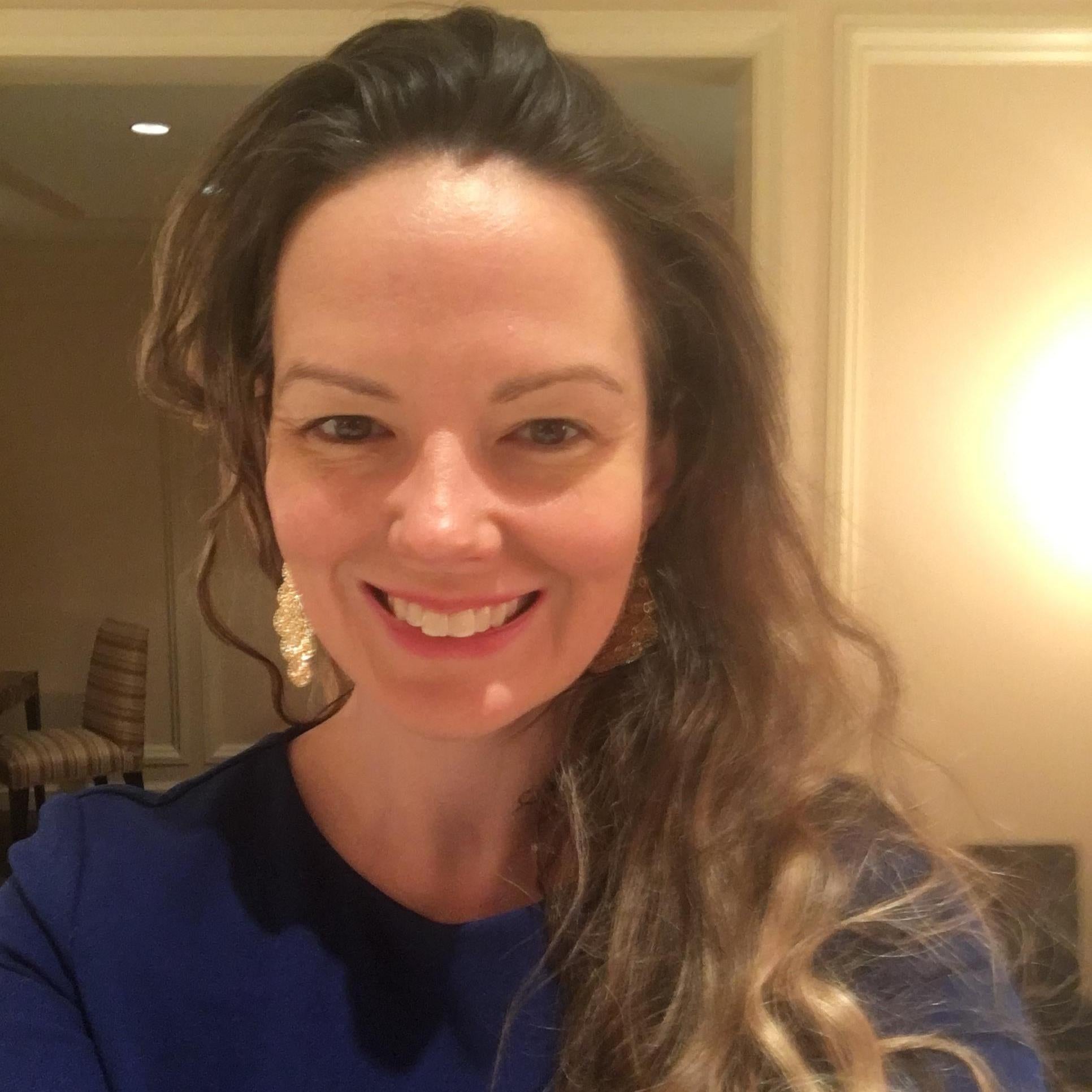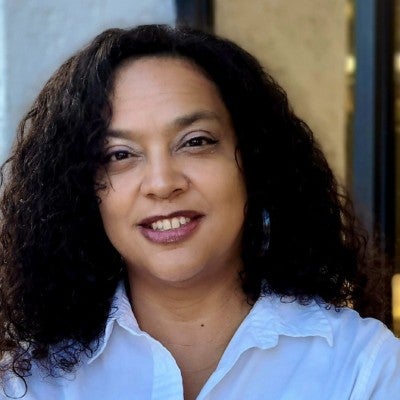Banner artwork by ACC
According to ACC’s 2025 Chief Legal Officers Survey, 35 percent of CLOs globally identified operational efficiency as their department's top strategic initiative for the next year. It’s a lot of pressure for legal ops professionals!
Whether overseeing structural team changes, budgeting and recommending changes to law firms, or implementing technology such as document management systems, matter management systems, or e-Billing systems, legal ops can take many forms. These projects are often time and cost sensitive. But behind them are people. How we do ensure that we successfully deliver our objectives while balancing team well-being?
Considering these topics with me, ahead of their discussion at Legal Ops Con 2025 on the same topic, are:

Stacey Shaw, Assistant General Counsel, Careington International Corporation
Shaw has performed legal operations functions at every company she has worked with.

Lenor Marquis Segal is a “superuser” and “big fan” of the legal operations industry.

Rebecca Pluguez's role includes day-to-day operations including legal operations.
Can you briefly describe a legals ops project you undertook and how challenging it was from a people perspective?
Shaw: “Most employees had been at the company for 10 to 30 years, and I was coming in as a new team member and trying to change processes. Each department had their own way of storing and managing, so it was a significant, time-consuming task to try to learn each department's role and processes in the contract process.”
Marquis Segal: “One challenge I see generally across the board is that legal speaks in the language of issue-spotting, risk identification, and criticism. That can feel very negative, even if not legal's intention. Legal operations can help address these tendencies and anxieties by presenting upfront the bugs and the “worst case scenario”— which is oddly a security blanket to legal. Legal can work on improving how it communicates its positive thoughts (which I swear we have)!”
Pluguez: “I undertook the implementation of the university’s contract management system from beginning to end. From a people perspective it required us to implement an organizational and technological change that some were ready for and others… not so ready.”
Efficiency is a fundamental part of successful legal ops. How do you navigate the need to push for short-term and long-term efficiencies on projects with the need to keep people healthy and motivated?
Shaw: “I have always been using SharePoint for many years and have really pushed Microsoft365 tools the company already pays for to assist with efficiencies. I always tell people when you are more efficient and eliminate unnecessary, low-value, time-consuming tasks, your well-being will automatically improve because you are able to spend more time on higher value tasks and complete them more efficiently.”
I always tell people when you are more efficient and eliminate unnecessary, low-value, time-consuming tasks, your well-being will automatically improve because you are able to spend more time on higher value tasks and complete them more efficiently.
Marquis Segal: “I’m a big believer in no fake deadlines and no fire drills. Real emergencies are one thing, and that’s all hands on deck. Leaders need to be realistic about when something is actually needed.”
Pluguez: “Prioritize their mental and emotional well-being first. Once that is taken care of employees are more productive and efficient in any task, short or long.”
What do you do to keep people motivated through the toughest parts of ops projects? Do you have any tips for helping your team work well together?
Shaw: “Just listen. Don't try to fix initially. Sometimes stakeholders just want to be heard or want to vent about frustrations. Maybe they felt left out of a process or are struggling with change. There can be many reasons why someone is frustrated. If you can actively listen without judgment and then tell them you want to take their feedback and discuss in a follow-up session, it shows them you care about their concerns and will take the time to think about solutions.”
Marquis Segal: “No matter whom I am working with, I like to celebrate all the little wins. We have to stop and enjoy success, no matter how tiny a victory. Some days it may just be living to fail again a different day.”
Pluguez: “Make sure they did not feel disappointed but have a say for what we believed in and move forward.”
How do you deal with stress to get projects achieved and how do you help your teams to deal with stress?
Shaw: “Not everything can be urgent. We require requestors to explain why a request is urgent if they select "urgent" in our legal request form.”
Marquis Segal: “It is too easy to work all the time, whether in legal or legal ops. But some of the best ideas come from when we are ‘bored’ or ‘just playing around.’ We have to give ourselves time and opportunity to dream and create. What we bring to the table is our humanity. Humans need food, water, exercise, sunshine, air, and sleep.”
Pluguez: “I have outlets, like physical activity, in which I can destress. I encourage my team to do the same.”
Top tips for balancing efficiency and well-being
Establish trust and respect
Legal ops professionals, in-house counsel, and potentially third-party vendors should have a relationship based on respect and trust. Only then will they be able to whether more time is needed for a deadline as well as successfully navigate challenges and support individuals to ensure the project is delivered on time.
Backstops are important
Ensure there are no single points of failure where someone in the legal operations team is the only one with the know-how, experience, or access to ensure the project is delivered on time. Having a single point of failure makes the project vulnerable to failure while putting pressure on individual’s well-being. Start by being clear on who does what with a RACI and then have a backup for any key roles in the project.
Identify priorities
Overlapping deliverables are inevitable. During these times, help your team identify what is critical to move the project forward. Then keep a list of what still needs to be done but can wait until the next day or week. This helps everyone feel they have captured what needs to be done today not lose sight of what needs to happen tomorrow. It takes pressure off trying to get everything done at once and reduces the risk of burnout.
“Solutions only”
When people start to feel overwhelmed and blame each other for problems, this can prevent the project moving forward. Move people away from this negative thinking and back to “solutions only mode” without blame.
Recognize stress
Projects are often long marathons rather than sprints and, where you recognize someone in your team is struggling, recommend they take a break of a few hours or a day and come back with some renewed energy. Where people have worked well beyond what is expected, try to reward them with additional time off or some other reward so they recognize their efforts are acknowledged and they are valued in the team longer term. This goes to helping with longer term team wellbeing.
Challenge negative thinking
Where someone in the team is becoming emotional due to overwhelm or stress, help them to challenge and identify what is making them feel this way and challenge any negative thinking by asking questions like:
- “Is the situation as bad as you think it is?”
- “Are you focusing only on the negative?” and
- “Is there a way to get through this issue and then reconsider any emotions associated with it after the fact when you feel less emotional and can be more objective?”
Be reasonable
During projects, help people with prioritizing and time management. Ironically, people start to feel overwhelmed when trying to find efficiencies. In addition to helping to prioritize tasks and remove unimportant ones, help the team be reasonable about what can be achieved to avoid feelings of “failure.” Help the team celebrate tasks completed that day and identify what needs to be done the following day.
What are you most excited about doing or seeing at Legal Ops Con?
Shaw: “Meeting others passionate about legal operations and I am excited to share tips and hear what others are doing within their teams.”
Marquis Segal: “Pause and really enjoy the conference as a chance to bond with a lot of really interesting people doing very innovative things, often with few resources and suboptimal support.”
Pluguez: “I am looking forward to seeing everyone at the conference. It is well organized, and ACC works hard to make it happen.”
Disclaimer: The information in any resource in this website should not be construed as legal advice or as a legal opinion on specific facts, and should not be considered representing the views of its authors, its sponsors, and/or ACC. These resources are not intended as a definitive statement on the subject addressed. Rather, they are intended to serve as a tool providing practical guidance and references for the busy in-house practitioner and other readers.




